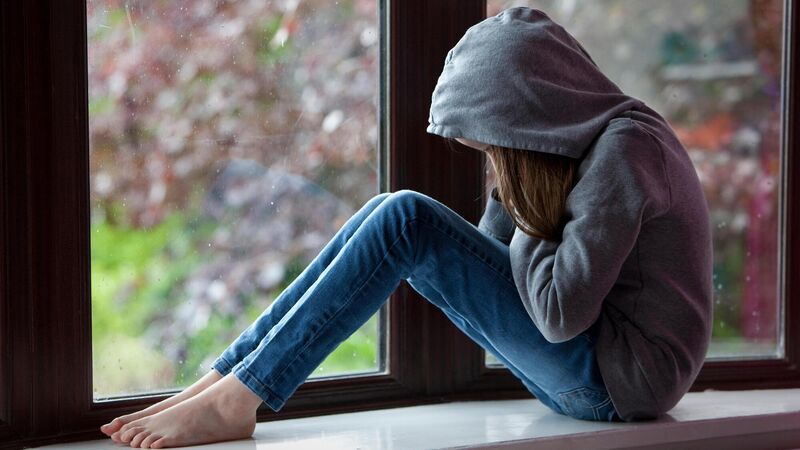'Not every child is going to wake up to a Christmas present': Festive period can be the toughest for children

CHILDLINE volunteers in Cork will be working throughout the Christmas period to try and improve the lives of the children who contact them for help with mental health, physical abuse and sexual abuse.
CHILDLINE volunteers in Cork will be working throughout the Christmas period to try and improve the lives of the children who contact them for help with mental health, physical abuse and sexual abuse.
Manager of Childline’s Cork office in Penrose Wharf, Regina O’Sullivan, told The Echo that over the last 12 months, they have seen a rise in contacts from children in frightening situations such as being sex trafficked by their own parent or trying to take their own life.
She explained: “Nationally, we have seen a rise in mental health issues with 50 children contacting us in the process of taking their own life this year.”
Childline have seen 300 children make contact this year in relation to sexual abuse, including rape, incest or being forced to watch a performed sexual act, and they have also seen more children ring to report physical abuse or domestic violence, with children being hit or physically punished.
“And it’s scary, but we have seen cases of children contacting us who are involved sex trafficking, often they’ve come from another country or any child who is underage but has been forced into this,” she said.
“One particular child contacts us a lot, her mother is a sex worker and she’s been trafficked by her own mum — she’s been in contact for nearly two years and she’s 13 now.” In these situations, though it can be difficult, they cannot force the child to report what’s going on, they can only offer support and listen.
Ms O’Sullivan explained: “With that child, when she first made contact we let her know first of all that what was happening was wrong, informed her of her rights and let her know what supports are out there.
“Every contact is confidential, we cannot see their details, but we let them know about Tusla, about ringing 999, and we also offer that we can make a referral for them, that would involve them giving identifying info to us and we would pass it onto the gardaí on their behalf.
“Sadly, a lot of the time children who contact us are not ready for that step — sometimes it’s a process of just talking about it and supporting them.” She explained that this child “just wants a bit of company”.
“A lot of the time she uses our service not to talk about the sex trafficking but her school day, her dreams and her hopes, and we recognize her voice because she uses the service so much but we don’t ask her about things if she doesn’t bring them up.
“What we can offer her is normality, a listening ear, and let her know she’s not on her own – she’s an amazing girl and talks about her friendships and hobbies, and she talks about the future a lot – she gets to dream when she’s talking to us.”
Ms O’Sullivan explained that that girl would be one of several who repeatedly make contact with Childline.
She said: “We do have children that would contact us quite regularly, there’s another little girl in a one-parent family who’s often left at home to mind her younger sibling while the parent goes out to drink. She’s been in contact with us now for well over a year, and she also rings for company — she knows about calling 999 but she doesn’t want to do anything.”
Her situation is not unusual, Ms O’Sullivan said, explaining that a parent’s alcohol addiction can have a huge effect on a child and issomething they hear about a lot from children who get in touch. In some cases, the parent goes out a lot, which causes problems, she explained.
“Currently, there isn’t any law in Ireland that states what age a child is old enough to stay at home on their own, but for a child, when their parents go out especially at night they often find it very frightening and scary.”
Parents who drink at home is another issue, she said. “Most children, even if there isn’t excessive alcohol, can get nervous when their parent starts to drink even a couple of glasses of wine – it does alter our mood and that can be worrying for a lot of children, if their parent seems different to normal it can make them feel insecure and unsafe.
“It’s something that is really heightened around Christmas, it’s a time of year when you might have extended family coming into house, feelings and emotions are heightened at that time of the year, especially Christmas night.
“A lot of children reach out after arguments within the household, where there may never have been arguments before. There’s more alcohol in houses over Christmas, new people, parties and we get a lot of calls about that.
“New Years is another big one, children at home hiding in their rooms, they don’t like the noise and they’re scared due to strangers in the house.”
These days, considered by many to be the happiest of the year, can be the most frightening for children, which is why it’s so important that there is always someone at the other end of the Childline phone.
Ms O’Sullivan explained: “We are 24/7, so we’ll have volunteers in the Cork centre on Christmas day.
“They also get two weeks off for Christmas, and I know from a friend who works with children in a disadvantaged area’s national school that they all worry about the children they work with for those two weeks, if they’re getting a hot meal.
“Not every child is going to wake up to a Christmas present in the morning, and that is another thing we can’t always do anything about.”
She added that school is sometimes the happiest place for a child with a difficult home life, and that the covid pandemic really showed this, and they are still feeling its affects at Childline now.
“Everyone’s experience of covid was different — for some families it was a chance to be together and it was welcomed, but a lot of children were getting their only hot meal in school, for a lot of children the pandemic resulted in a lot of neglect, missing the supports they would have gotten in school and it was a tough time for a lot of children.
“One effect we’ve seen since covid is that the amount of anxiety children feel seems to have really increased — that’s also an effect of social media, children watching videos about the best make-up and style and they start to think they’re not good enough.”
Ms O’Sullivan concluded: “It can be a difficult job at times — one of the hardest things is when you know that there’s a child in crisis and they end the engagement and you’re left wondering are they okay if they haven’t given their details you might never know.
“But a lot of training goes into volunteers before they take calls or online chats such as trauma training and supports they can offer, the ISPCC also offer counselling services to volunteers so we can get support there.” For anyone at home who would like to help, she said: “We’re always looking for donations to improve our service.
“We have new projects all the time like the digital wellbeing programme, a free service for children and parents, and we hire therapeutic support workers work one-to-one with children through a referral, but that’s all paid staff, not volunteers.
“The more staff we can get working on the ground with these children the better, the services we provide are free but in order to provide them, we rely heavily on public donations.
“Also in our Cork office, we are currently recruiting for new volunteers, there will be new training in Cork starting in February so if anyone is interested, there is an application form on the ISPCC website.”










 App?
App?


